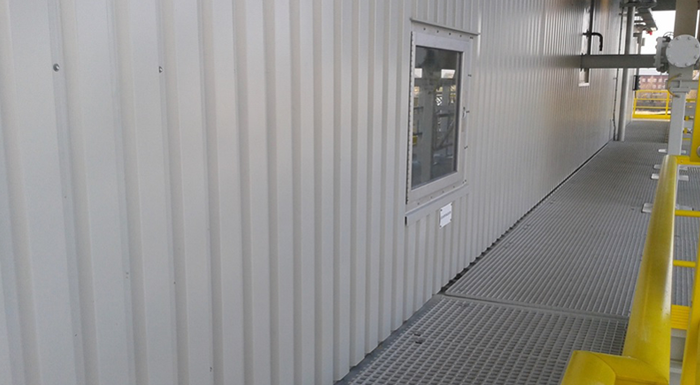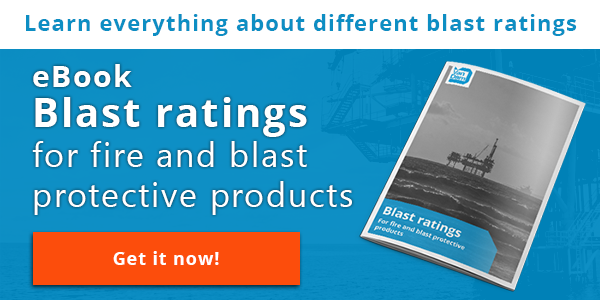Corrugated steel walls: the best solution in blast resistant design


Blast resistant walls are significant regarding safety within structures with risks of (hydrocarbon) explosions. They are expected to retain their integrity during blast events to protect personnel and critical equipment within and outside the structure.
Blast resistant walls are tested according to stringent rules and regulations according to the required level of protection. In general, the analyses are based on the following standards:
- Design Guide for Stainless Steel Blast Walls, Technical Note 5, (FABIG)
- Design of Blast-Resistant Buildings in Petrochemical Facilities (ASCE)
- Blast resistant Building Design Criteria, Process Industry Practices (PIP)
- API Recommended Practice 2A-WSD (RP 2A-WSD)
According to these standards, blast walls can be designed in various ways. Yet, the proven efficiency and effectiveness of corrugated steel walls has made this solution the best choice for the oil and gas industry.
Why choose corrugated steel walls?
Corrugated steel walls are generally the best solution for protection against explosions due to their excellent structural properties. Given their particular geometric characteristics, corrugated blast walls are better energy-absorbing systems than other types of blast walls.
Steel is a highly durable material with a high resilience and resistance to damage. Corrugated steel provides excellent protection against all types of weather conditions and simultaneously against blast incidents. It also provides good fire and corrosion resistance properties. Blast resistant walls can be constructed of mild steel, stainless steel or duplex, according to the specific requirements of the project.
Additionally, corrugated steel requires minimal maintenance while retaining its appearance for a long time. Such blast walls are also lightweight, which benefits the overall weight of a structure. Hence, corrugated steel walls are the most cost-effective, lightweight solution for blast resistant design in terms of blast walls.
Download our eBook to learn more about blast ratings.






